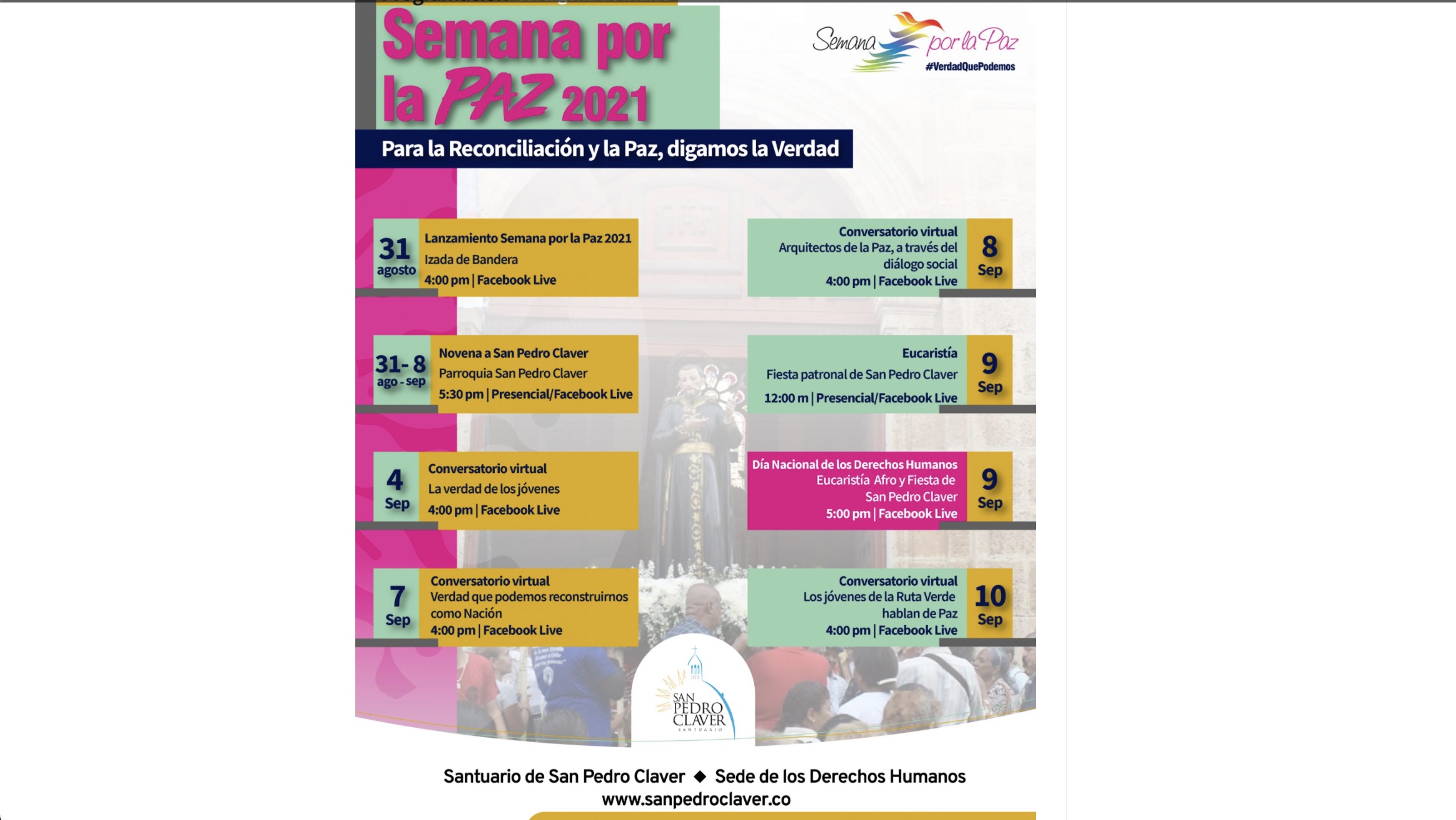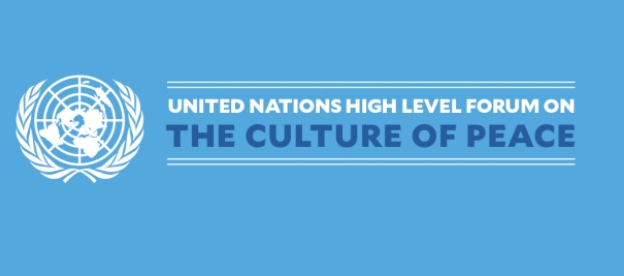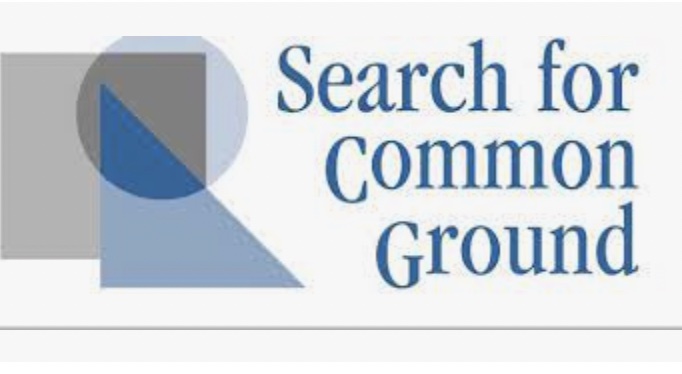FREE FLOW OF INFORMATION
Here are events and application deadlines in September that were previously listed on the CPNN page for upcoming virtual events. Where possible links are provided to recordings of the events. Unless otherwise noted the events are in English.

September 7, 10:00 AM-5:45 PM Eastern Standard Time (USA)
United Nations High Level Forum on the Culture of Peace
Theme: “The Tranformative Role of the Culture of Peace: Promoting Resilience and Inclusion in Post Covid Recovery”
— Plenary segment 10:00 AM to 1:00 PM – Remarks by President of the General Assembly, UN Secretary-General and 2017 Nobel Peace Prize Laureate, followed by remarks by Member States.
— Virtual panel discussion 3:00 PM to 5:45 PM.
— Live broadcast by UN Web TV
Sep 9, 2021 9-11am Eastern Time USA, 2:00 PM in London,
Nuclear Weapons & Climate Change: In commemoration of the International Day Against Nuclear Tests
An intergenerational dialogue on nuclear-climate impacts & avenues for action. This will be a hybrid event with a limited number of guests participating in person while most others will participate via zoom online platform.
— The event is co-hosted by the Kazakhstan Embassy in London, Nursultan Nazarbayev Foundation, Parliamentarians for Nuclear Non-Proliferation and Disarmament, and Youth Fusion.
— Zoom registration
September 11 @ 3:00 pm – 6:00 pm Eastern Standard Time (USA)
Never Forget: 9/11 and the 20 year War on Terror
The world changed on September 11th 2001. The tragic deaths of almost 3,000 people and the destruction of the World Trade Center’s Twin Towers in New York City had a deep effect on the American people. 9/11 fundamentally altered the culture of the United States and its relationship with the rest of the world. The violence of that day was not confined, it spread throughout the world as America lashed out both at home and abroad. The almost 3,000 deaths of September 11th became hundreds of thousands (if not millions) of deaths from wars the US launched in retaliation. Tens of millions lost their homes. Join us, on Saturday September 11th, as we reflect on the lessons of 9/11 and the lessons of the 20 year Global War on Terror.-
— We’ll hear testimonials from Medea Benjamin, Danny Sjursen, Assal Rad, Kathy Kelly, David Swanson, Matthew Hoh, Kevin Danaher, Jodie Evans, and more!
— zoom registration
Sunday, September 12, 4:00 pm PDT/7:00 pm EDT (USA)
North American Solidarity Activists Speak Out: US Sanctions against Africa and Latin America
Instead of reversing Trump’s unilateral coercive measures, Biden has extended the sanctions, which are illegal under international law. Sanctions are a form of war. They are directed against the people from countries that will not follow the dictates of the US. The goal is to make the lives of the people in these countries intolerable so they will oppose their governments and support the US regime-change agendas in their countries. In their most severe form, as is being imposed on Cuba, Venezuela, and other countries, they deny these countries food, medicine, and trade and cause great suffering for the people of the sanction countries.
— Hear: Ajamu Baraka (Black Alliance for Peace and UNAC Administrative Committee member), Omowale Clay (December 12th Movement), Sara Flounders (International Action Center and UNAC Administrative Committee member), and Margaret Flowers, (Popular Resistance and UNAC Administrative Committee)
Sponsored by the Sanctions Kill Coalition
— Register here
Sunday, September 19, 2:30-3:45pm, Eastern Standard Time, USA
NO FIRST USE, AND BRINGING AN END TO NUCLEAR WEAPONS
The Comprehensive Test Ban, which ended nuclear testing. What are the next steps, to bring an end to these weapons of mass destruction?
Speakers:
– Ambassador Thomas Graham, Jr.
– Erin Hunt, ICAN & Canada Landmines Action
— Offered By: Coalition for Peace Action in cooperation with UNAGP and Pennsylvania PSR
— Zoom regisration
lunes 20 de septiembre, a las 17 hs. (horario Argentina)
Encuentro virtual “Homenaje a Paulo Freire”
Le invitamos a completar el presente formulario para inscribirse al tercer encuentro del Ciclo “Pensar la educación del porvenir desde las tradiciones pedagógicas latinoamericanas” organizado por el Instituto Latinoamericano de Estudios Sociales (ILES) y la Organización de Estados Iberoamericanos (OEI) en Argentina.
— El encuentro virtual se realizará por el canal de YouTube de la OEI. Se le enviará el enlace de acceso en los días previos al Encuentro al correo que nos informe en el presente formulario.
— formulario para inscribirsen
Tuesday, September 21, 2021 • 6:00 PM • Chennai, Kolkata, Mumbai, New Delhi (GMT+05:30)
Online India & Afghanistan Chapter Launch Event: Celebrate International Peace Day!
Join us for a online launch event to kick-off the new World BEYOND War India and Afghanistan chapters!We’ll discuss World BEYOND War’s mission and campaigns, the current state of the peace movement in Afghanistan and India, and why we need a world beyond war. We’ll have time to break out into discussion groups to talk about what anti-war issues matter to you and how we can work together to create World BEYOND War chapters in India and Afghanistan.
— registration
22 September 2021, 9:00 am – 11:00 am Eastern Standard Time (USA)
Promoting Peaceful, Just, And Inclusive Societies
Based upon the feedback and recommendations received from the first Global Webinar Series, Religions for Peace, in coordination with Regional Offices, will convene the second series of global capacity development webinars in 2021, with a view to continuing to facilitate the process of strategic Learning Exchange among IRCs across the movement. These webinars will focus on our Six Strategic Goals:
— Promote Peaceful, Just, and Inclusive Societies
Advance Gender Equality
Nurture A Sustainable Environment
Champion the Freedom of Thought, Conscience, and Religion
Strengthen Interreligious Education
Foster Multi-religious Collaboration and Global Partnerships
Simultaneous translations for Arabic, French, and Spanish will be provided for all global webinars. Following each of these, regional webinars will be organized under the leadership of the Religions for PeaceRegional Secretaries General, in coordination with the Religions for Peace International Secretariat.
— This event is by invitation only. Inquiries can be sent to pbartoli@rfp.org.
Thursday, 23 September 2021, 12:00 – 15:00 Central European Time
Launch of manual “Peace Education meets Religion
Religious traditions can play an ambivalent role: in some settings they can foster violence or act as a powerful driver of conflict, while in others they can be a resource for peaceful actions in being a ‘connector’. Faith-based actors and institutions have a central role to play in harnessing religion’s potential for building peace and transforming conflict.
— Aiming to support the efforts of faith-based multipliers, the Berghof Foundation and partners developed and piloted the ‘Peace Education meets Religion: Manual for Multipliers’ over the past two years.
— The Berghof Foundation invites you to the manual’s virtual launch and an interactive workshop introducing some of the manual’s specific methods.
— Register here
Wed. Sept 29, 7:00 pm Eastern Standard Time (Canada)
Annual Mahatma Gandhi Lecture on Nonviolence
Title: Environmental responsibility, social justice, and the Haudenosunee Great Law of Peace
— speakers
Prof. Dawn Martin-Hill, MacPherson Chair in Indigenous Studies at McMaster University
Prof. Rick Monture, Director of the Indigenous Studies Program at McMaster University`
— Zoom link: Meeting ID 948 0213 8608, Passcode: 515278
















